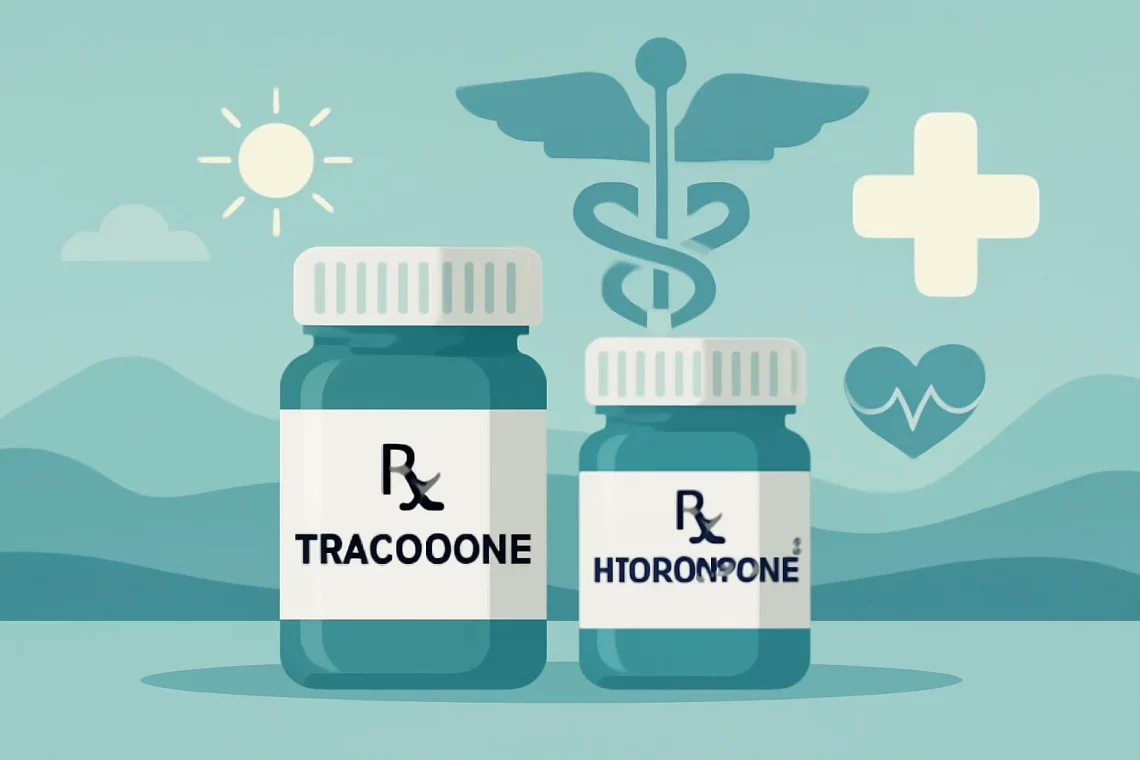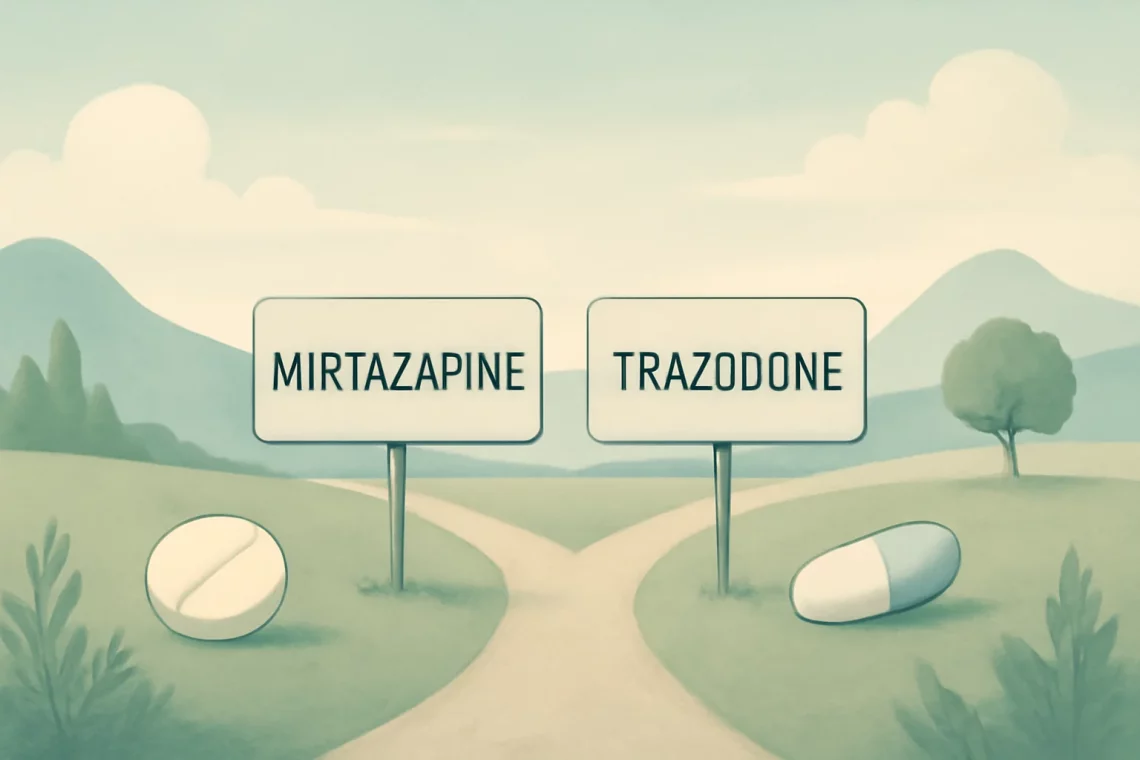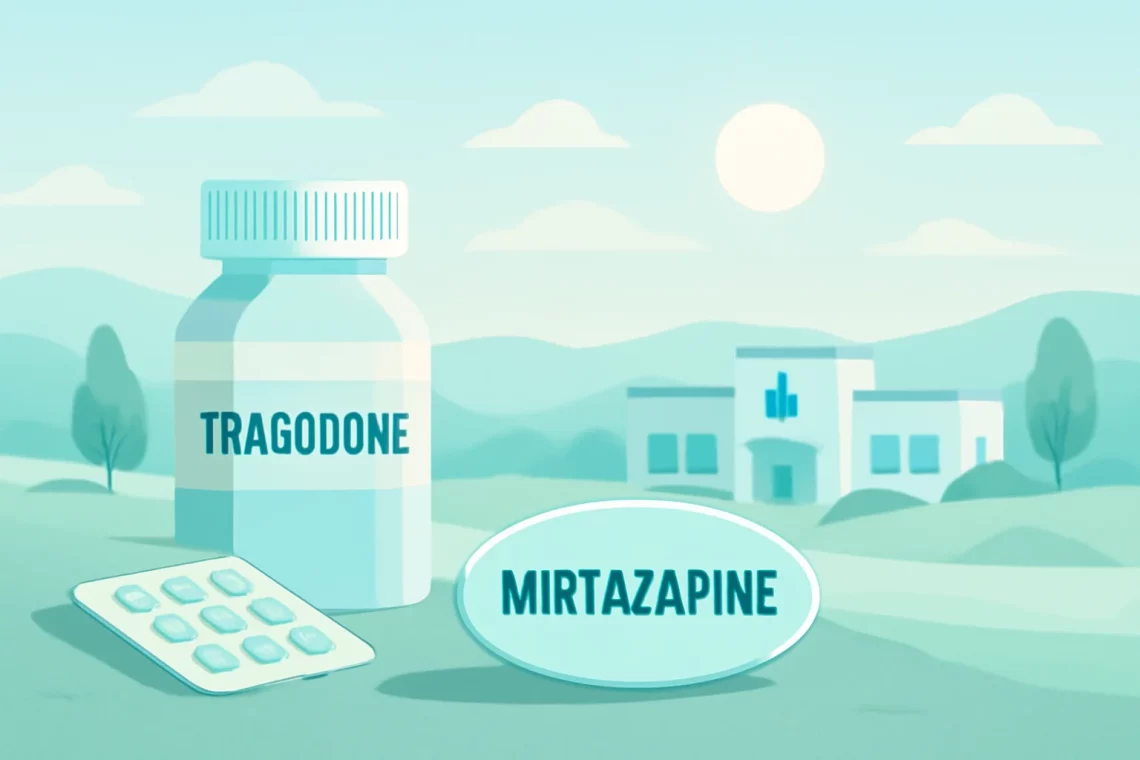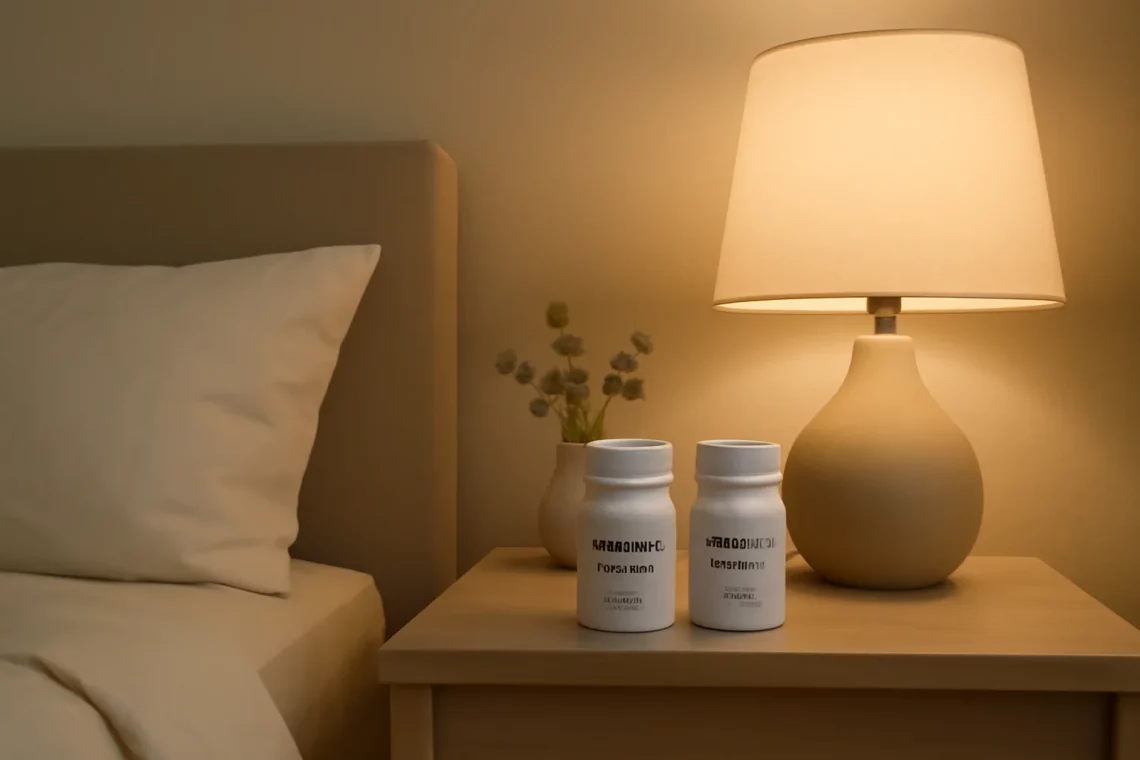-
Trazodone vs Belsomra: Which Sleep Aid is Right for You?
Trazodone and Belsomra are two medications often utilized in the management of sleep disorders and mood-related conditions. As the prevalence of insomnia and other sleep-related issues continues to rise, many individuals find themselves exploring various treatment options. Prescription medications can offer significant relief, but understanding the differences between these drugs is crucial for making informed decisions about treatment. Trazodone, originally developed as an antidepressant, has gained popularity as an off-label sleep aid due to its sedative properties. Its ability to promote sleep and improve overall sleep quality has led to widespread use, but it is important to consider its side effects and interactions with other medications. On the other hand,…
-
Trazodone vs Hydroxyzine: Which is Better for Your Needs?
The distinction between various medications can often be a complex and daunting task, especially when it comes to understanding their specific uses, effects, and potential side effects. As our understanding of mental health and wellness evolves, so too does the array of pharmacological options available to those seeking relief from conditions such as anxiety, depression, and insomnia. Two medications that frequently come up in discussions around treatment options are Trazodone and Hydroxyzine. These drugs, while both used to treat anxiety and sleep disorders, belong to different classes and have unique mechanisms of action. Trazodone is primarily known as an antidepressant, but it is also often prescribed off-label for insomnia due…
-
Mirtazapine vs Trazodone: Which Antidepressant is Right for You?
Mirtazapine and trazodone are two medications commonly prescribed for mental health conditions, particularly for anxiety and depression. In recent years, there’s been growing awareness of the mental health crisis affecting individuals globally, leading to increased discussions about the most effective treatment options. Both mirtazapine and trazodone function as antidepressants, but they have distinct mechanisms of action and side effect profiles, which can influence a physician’s choice based on individual patient needs. As the stigma around mental health continues to diminish, more people are seeking help and exploring various treatment avenues. This shift in attitude has prompted patients and healthcare providers alike to delve deeper into the pros and cons of…
-
Trazodone vs Mirtazapine: Which Antidepressant Is Right for You?
Trazodone and Mirtazapine are two medications commonly prescribed for the treatment of various mental health conditions, primarily depression and anxiety. Both of these medications have gained recognition for their effectiveness, yet they operate through distinct mechanisms in the brain and have different profiles of side effects. Understanding the nuances of each medication can be crucial for patients and healthcare providers alike when making informed treatment choices. Trazodone is classified as a serotonin antagonist and reuptake inhibitor (SARI), while Mirtazapine falls under the category of noradrenergic and specific serotonergic antidepressants (NaSSAs). Their differing modes of action influence not only their efficacy but also the types of side effects and interactions they…
-
Trazodone or Mirtazapine: Which Antidepressant is Right for You?
Trazodone and mirtazapine are two medications commonly prescribed for the treatment of depression and anxiety disorders. As mental health awareness has grown, so has the need for effective treatments. These medications belong to different classes of antidepressants and have unique mechanisms of action, side effects, and therapeutic uses. Understanding the differences and similarities between trazodone and mirtazapine can help individuals make informed decisions about their treatment options. Both medications are generally well-tolerated, but their efficacy can vary from person to person. Some patients may respond better to one medication than the other, and factors such as individual health history, other medications being taken, and potential interactions can influence this choice.…
-
Quviviq vs Trazodone: Which Sleep Aid is Right for You?
Sleep disorders are increasingly common in today’s fast-paced world, affecting millions of people globally. As the importance of restful sleep becomes more recognized, various treatments have emerged to help individuals manage their sleep difficulties. Among these treatments, medications like Quviviq and Trazodone have gained attention due to their differing mechanisms of action and applications. While both are used to promote better sleep, they come from distinct pharmacological backgrounds and have unique side effect profiles. Quviviq, a newer entrant in the sleep aid market, aims to address insomnia through a novel mechanism that targets specific receptors in the brain. In contrast, Trazodone, originally developed as an antidepressant, has become a commonly…
-
Trazodone vs Ambien: Which Sleep Aid Is Right for You?
Sleep disorders have become increasingly prevalent in today’s fast-paced world, where stress and anxiety often interfere with a good night’s rest. As individuals seek solutions to their sleep-related issues, various medications have emerged as popular treatments. Among these, Trazodone and Ambien are two commonly prescribed options, each with distinct mechanisms and applications. Understanding the differences between these medications is crucial for those considering them as part of their sleep management strategy. Both Trazodone and Ambien have gained recognition for their effectiveness in promoting sleep, yet they operate in unique ways and cater to different patient needs. Trazodone, originally developed as an antidepressant, has been found to have sedative properties that…
-
How Long Does Trazodone Stay in Your System? Insights and Facts
Trazodone is a medication primarily used to treat depression, anxiety, and sleep disorders. As a serotonin antagonist and reuptake inhibitor (SARI), it works by balancing chemicals in the brain that affect mood and emotions. While trazodone is effective in alleviating symptoms for many individuals, understanding how long it remains in the body is crucial for various reasons, including medication management, potential side effects, and drug testing scenarios. Factors such as dosage, frequency of use, individual metabolism, and overall health can all influence the duration trazodone stays in one’s system. The pharmacokinetics of trazodone can be complex, and its half-life is an important aspect to consider. The half-life of a drug…
-
Trazodone vs Xanax: Understanding Their Uses and Differences
Trazodone and Xanax are two medications that are often discussed in the context of mental health and wellness. Both have distinct properties and uses, which can sometimes lead to confusion among patients and caregivers alike. While they may both be prescribed to address similar symptoms, such as anxiety and depression, their mechanisms of action, side effects, and indications for use can be quite different. Understanding these differences is crucial for anyone considering treatment options, as well as for those supporting loved ones who may be navigating the complexities of mental health care. In an era where mental health awareness is growing, it is more important than ever to have a…
-
Trazodone vs Xanax: Understanding Their Differences and Uses
Trazodone and Xanax are two medications often prescribed for mental health conditions, yet they serve distinct purposes and operate through different mechanisms in the body. Understanding the nuances between these two drugs is crucial for patients and healthcare providers alike. Trazodone is primarily used as an antidepressant, while Xanax is well-known for its anxiolytic properties, targeting anxiety and panic disorders. The complexities of mental health treatments can be overwhelming, especially when navigating various medications and their potential side effects. Each medication has its unique profile, which influences how it interacts with the body and addresses specific symptoms. Additionally, as mental health awareness increases, so does the need for patients to…







































